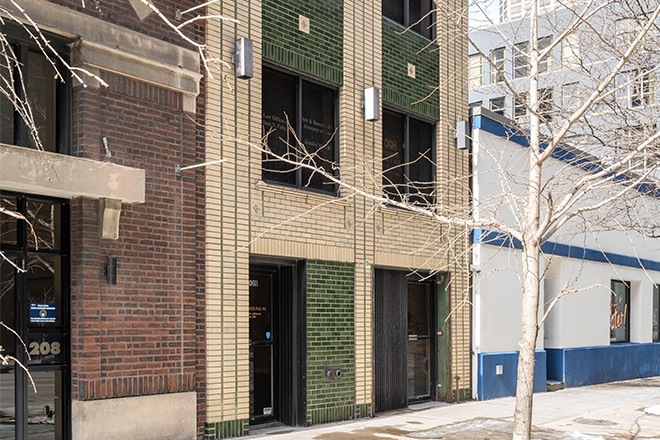Chicago nightclub The Warehouse recognised as a national landmark
The so-called 'birthplace of house', where Frankie Knuckles was once a resident, received landmark status last week

The Warehouse, which is said to be the birthplace of house music, was granted national landmark status by the city of Chicago on Tuesday, June 20.
Originally established on 206 South Jefferson Street in Chicago, Illinois, in 1977, The Warehouse quickly became a hotspot for disco-loving Black and Latino queer men who would dance to the sounds of the venue's resident DJ Frankie Knuckles.
Frankie’s style involved an unusual blend of reigning disco classics, European synth-riddled electronic music, and the occasional indie label soul or rock track. This encompassed the early days of house music, named after the genre’s birthplace.
Read this next: Listen to a previously unreleased Frankie Knuckles Mix
The Chicago City Council granted the former factory landmark status last week under a petition drive that began in March of this year. In April, The Warehouse was given a boost after all seven members of the Commission on Chicago Landmarks voted in its favour.
Joe Shahanan, the founder of many renowned Chicago nightclubs including Smart Bar, a venue that Knuckles was the first to perform at, commented: "A lot of people call [Frankie] the ‘Godfather of House.’ I’ve always considered him the ‘Architect of House’. He's the one that built the foundation of what became a global phenomenon”.
In regards to the preservation of the site as a cultural beacon, he went on to say that the Council should "let the people speak, let us be known this is an important aspect of our cultural history and should be saved".
Read this next: Chicago Councillor calls for two 24-house house music clubs
“Chicago landmarks illustrate the story of our history and culture,” said Brandon Johnson, Mayor of Chicago. “I’m proud that the City Council approved landmark designation for The Warehouse, a space regarded as the birthplace of house music and a safe haven for Chicago’s LGBTQ+ communities” he continued.
This marks an important milestone in the recognition of the cultural and historical significance of electronic music, and the large contribution that Black, Latino and queer disenfranchised communities had upon it.
Read this next: 30 of the Best Chicago House Tracks
In around 1984, Knuckles began experimenting with rhythm makers and drum machines to alleviate his mixes with drum pulses and "chic chik chok ka ka" sounds layered under cult disco classics, which was promptly mimicked by other local DJs.This sound defined the Chicago house genre.
This sound began being picked up by others outside of the Black and Latino queer scene. Many felt it was becoming somewhat commercialised, so Knuckles and The Warehouse founder Robert Williams departed to pursue more exclusive ventures.
Read this next: Celebrating Black History: Pioneers of House Music
The sound continued to grow in influence, however, thanks to DJs like Ron Hardy who succeeded Knuckles' position as a resident at The Warehouse. Once the sound flocked overseas to European nightclubs, house music became somewhat of an international phenomenon.
Frankie Knuckles passed away on March 31, 2014, leaving behind an unshakable legacy. His foundation can be accessed here.
Tiffany Ibe is Mixmag's Digital Intern, follow her on Instagram

Mixmag will use the information you provide to send you the Mixmag newsletter using Mailchimp as our marketing platform. You can change your mind at any time by clicking the unsubscribe link in the footer of any email you receive from us. By clicking sign me up you agree that we may process your information in accordance with our privacy policy. Learn more about Mailchimp's privacy practices here.

 61% of emerging DJs feel “social media numbers matter more than musical skill”
61% of emerging DJs feel “social media numbers matter more than musical skill”
